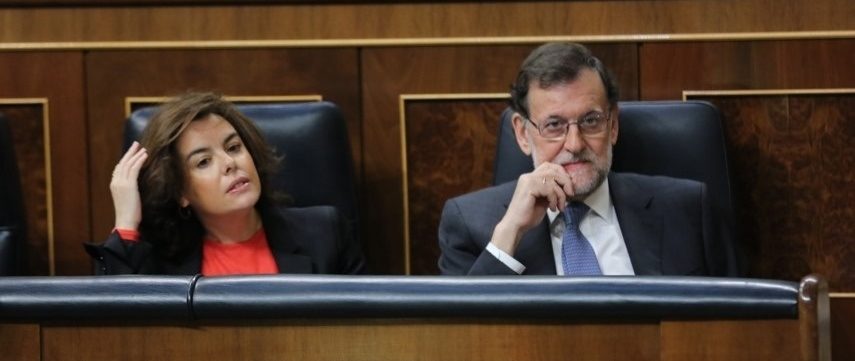20.10.2017 - 13:03
Yesterday was an exceptional day in terms of the internationalisation of the Catalan case. The meeting of the Council of Europe brought us a string of public statements —and something more than that— about the Catalan situation. Those who referred to it included Vladimir Putin, Silvio Berlusconi and Cuauhtémoc Cárdenas. Practically every European leader mentioned it ahead of the Council’s meeting. With a message on its official Twitter account, Germany wished to make it clear that the issue would be discussed, even if Merkel denied it later. The PM of Luxembourg, the country Juncker is from, publicly stated that the Council of Europe cannot avoid addressing the situation in Catalonia. Macron sided with Rajoy unconditionally, but Belgium leaked Spain’s threats against them, in a decision that reveals the obvious anxiety of Spain’s diplomacy. The man who apparently prevented the declaration of independence from being enacted on October 10, Donald Tusk, yesterday was tasked with saying in public that they will have none of it. Roger that.
In public, the Council of Europe stands together with Rajoy, leaving absolutely no room for any hope of a negotiation. But, behind closed doors, the situation is unlikely to be quite the same. In Brussels, offering support in public whilst applying pressure in private and behind closed doors are not mutually incompatible. A further clue might be found in Rajoy’s apparent prudence when invoking Article 155 [of the Spanish Constitution to impose Madrid’s direct rule on Catalonia]. He has put off the required cabinet meeting until Saturday, once he has returned from Brussels, rather than rushing to call it yesterday, as he had announced initially. Likewise, the date of the Senate’s plenary session to discuss this measure has been set for October 30 and 31, which is an eternity, given how fast events are unfolding. In a climate of tension Spain stands to lose much more than Catalonia and, apparently, the penny has begun to drop.
At any rate, there is a fact which the Catalan government should be well aware of because it is crucial. The only reason why all that happened yesterday is the same reason why the Catalan parliament was packed with journalists from all over the world on October 10: the credibility of a truly impending declaration of independence. More than yesterday’s, Puigdemont’s letter to Rajoy a few days ago once again showed the international community that Catalonia was willing to go all the way, and that is what prompted the reaction. That and, for obvious reasons, the protests in the streets over the imprisonment of Jordi Sànchez and Jordi Cuixart, which confirms the authoritarian image of the Spanish regime following the crackdown on October 1, causing the temperature to rise another notch.
I do not know —I can’t say for sure— whether the Catalan government agreed to put the declaration of independence on hold (which has rattled the rank and file on the pro-independence camp) because they were persuaded that these things would happen and the famous “internal affair” would soon cease to be internal. Or whether, as some claim, they did so because Tusk appeared to be proposing something that now he won’t go through with. Either way, by now it has become apparent that Rajoy can no longer prevent Catalonia from becoming an international actor. Equally obvious is the fact that some EU member states (and other countries which are not) are unwilling to side with the Spanish government unconditionally: Madrid’s harsh letter to the Belgian government says it all. Furthermore, the EU prefers to play with fire and blindly close ranks with the Spanish authorities. Therefore, it is also obvious that there is absolutely no reason why we should expect any sort of mediation.
All these events also reveal something that we shouldn’t overlook at all and there is a key lesson to be learnt here: just like everything returned to business as usual the day after independence was put on hold —because the parliament’s determination to carry it through was no longer credible—, yesterday’s reaction has shown that one becomes credible once action is taken. So let’s stop wasting our time and let’s start taking some action.


